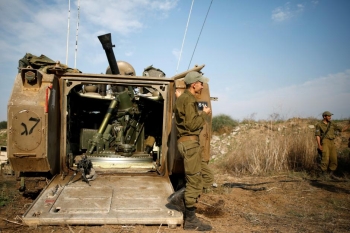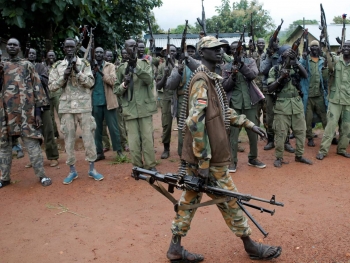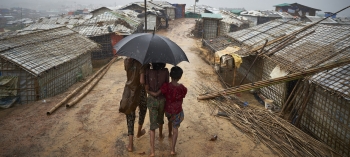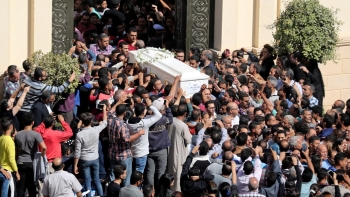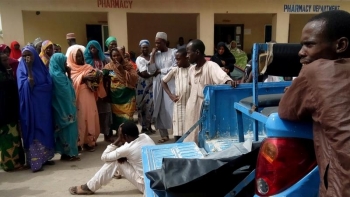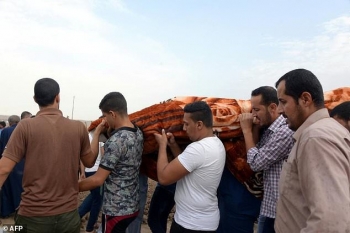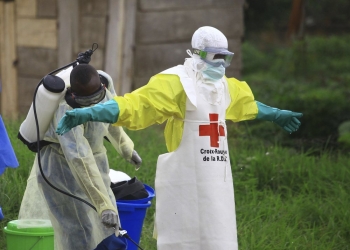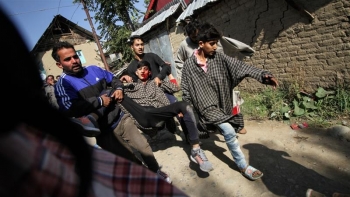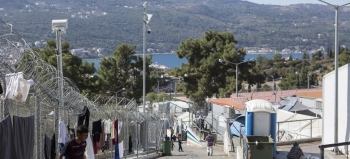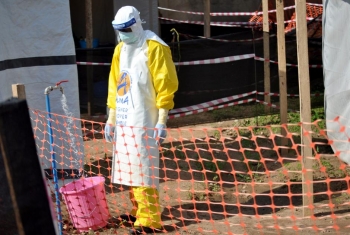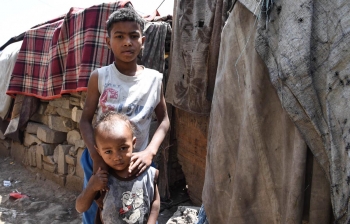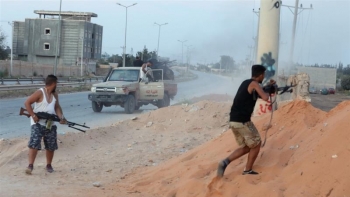L’Osservatorio monitors the web and other information sources daily to provide in-depth news on the impact of contemporary armed conflicts on civilians.
14 November 2018
A ceasefire agreement has been reached between Israel and Gaza following a violent outbreak that killed and wounded multiple people.
On 13 November 2018, Palestinian militants and Israel entered into a ceasefire following a two day period of intense air fighting. This violence marks the fiercest conflict since the 2014 Gaza war.
The outbreak began on 11 November when an Israeli special forces team entered the city of Khan Younis, located in southern Gaza, disguised in a civilian vehicle. Seven Palestinians were killed during the raid and air attacks orchestrated by the Israeli commandos. Gunfire was exchanged during the operation, resulting in the death of one Israeli soldier. Amongst the seven Palestinians killed was Nour Baraka, a local commander of the al-Qassam Brigades, an armed wing of Hamas. Hamas is a militant Islamist group which currently controls the Gaza strip.
Following this attack, missiles from Gaza were fired into Israel by Palestinian factions. Al Jazeera reports that one man was killed in a building hit by rockets, while at least 27 individuals were wounded during the attacks. According to Reuters, the attacks forced residents of southern Israel to seek protection in shelters. Israel retaliated with air raids, killing five Palestinians. The air attacks destroyed buildings as well, including a Hamas television station.
The United States strongly condemned the rocket and missile attacks launched from Gaza, stating “we stand with Israel.” Since 13 November, following the Egyptian-brokered deal, Israel and Hamas have held their fire. However, Reuters notes that both sides have made it clear that this ceasefire is not a long-term agreement, rather it is an armed stand-off. Riyad Mansour, the Palestinian ambassador to the UN blamed the Security Council for not taking immediate action, and said they were “paralysed.”
The conflict in Gaza has been ongoing for years. BBC reports that in 2006, Israel and Egypt started a blockade of Gaza to stop militant attacks. Since 30 March 2018, Palestinians have organized weekly protests at the Israeli border. Protesters are pushing for the blockade to be eased. Similarly, they are also demanding to be given the right to return to the land which was lost during the 1948 war of Israel’s founding, according to Reuters. Over 220 Palestinians have been killed by Israeli troops during these protests. Israel claims soldiers have only opened fire as self-defense or on possible disguised attackers.
To know more, please read:
https://www.aljazeera.com/news/2018/11/palestinians-sceptical-gaza-truce-hold-181114101544472.html
7 November 2018
This is a presentation of “Violations and Abuses Against Civilians in Gbudue and Tambura States (Western Equatoria) April-August 2018”, released by the United Nations Mission in South Sudan on 18 October 2018.
The United Nations Mission in South Sudan (UNMISS) and the Office of the United Nations High Commissioner for Human Rights (OHCHR) jointly published a report detailing the abuse of civilians in Western Equatoria, South Sudan occurring between April through August 2018. This report was investigated by the UNMISS Human Rights Division (HRD) through increased surveillance by UNMISS human rights officers in the region and interviews conducted with 104 witnesses from 28 villages. The report was carried out in order to call attention to the human rights abuses occurring in this area, as well as to serve as a way to call for the groups involved to comply with international law.
Western Equatoria is located in western South Sudan, bordering both the Central African Republic and the Democratic Republic of the Congo. Since 2015, conflict has plagued this region. Initially, fighting mostly occurred between the Government-backed Sudan People’s Liberation Army (SPLA) and local armed defence groups. In 2016, the pro-Machar Sudan People’s Liberation Army in Opposition, or SPLA-IO (RM), fled to Western Equatoria, increasing fighting in the area. Although the SPLA-IO (RM) remained dormant in the area between mid-2017 and early 2018, commanders returned to the area in March 2018 with new military tactics, leading to intensified attacks against civilians. The SPLA has responded to the reemergence of the SPLA-IO (RM) in Western Equatoria through aggressive offensives.
From their investigation, UNMISS HRD established that the SPLA-IO (RM) carried out attacks either in an organized way or randomly. Organized attacks targeted specific villages or roads, while random attacks were opportunistic strikes against civilians by roaming SPLA-IO (RM) militants and groups. Over 887 villagers were abducted throughout these attacks.
Victim and witness accounts suggest that the SPLA-IO (RM) forced some abducted civilians into joining their forces. Reportedly, even children abductees, including boys under the age of 15 and girls over the age of 15, were provided basic military training. Enlistment was impossible to get out of unless civilians escaped captivity during training or fighting.
In addition to forced enlistment, SPLA-IO (RM) commanders and fighters sexually assaulted women and girls as a form of power. During attacks, UNMISS HRD reported 43 cases of rape or gang rape. The report details accounts of individual survivors, including one with a 15-year-old stating that, “I was very exhausted and in extreme pain and fainted after I was raped... When I regained consciousness, with difficulty, I forced myself up because my captors told me ‘the next time you will pretend fainting, we will rape you again.’”
The report’s scope also focused on villagers who were not abducted. The SPLA-IO (RM) violently abused civilians by beating them with machetes, gun butts, wooden sticks, and whips and looted civilian properties. The terror instilled in villages from these attacks forced civilians to flee their homes. SPLA-IO (RM) attacks also targeted humanitarian actors. For example, in May 2018, 10 humanitarian workers were held captive for four days.
In addition to the detailing of abuses by SPLA-IO (RM), the report also documented violations of international human rights and humanitarian law by SPLA. These incidents are grouped into the unlawful killing of civilians, unlawful destruction of properties, and forced displacements. On 20 May 2018, during a counter-offensive operation in Nagero led by the SPLA, at least 14 civilians were killed. Allegedly, three of these civilians were physically unable to flee the village and were burnt alive in their homes by SPLA elements. In the same operation, civilians reported that SPLA forces were responsible for unlawfully looting and burning their properties, as well as ransacking eight health facilities and five schools. Thousands of civilians were displaced from Nagero and surrounding areas to Tambura as a result of the operation. Later, the Governor of Tambura accused internally displaced persons (IDPs) of supporting SPLA-IO (RM) and moved them to a desolate location. The Governor then briefly blocked humanitarian aid from being delivered to that location.
In light of these findings, UNMISS and OHCHR insisted that all parties involved in the conflict “must abide by international human rights law and international humanitarian law.” They also urged the SPLA-IO (RM) to release all abducted civilians. Similarly, they called upon the Government of South Sudan to conduct an investigation into the allegations of international law violations and to provide assistance and protection for all victims, including adequate and full reparation.
Original report available here: https://www.ohchr.org/Documents/Countries/SS/ReportWesternEquatoria17Oct2018.pdf
5 November 2018
Bangladesh and Myanmar plan to start the process of repatriation for Rohingya refugees despite UN investigators saying the Rohingya genocide is ongoing.
On 30 October 2018, Bangladesh and Myanmar announced they had agreed to begin returning hundreds of thousands of Rohingya refugees to Myanmar by mid-November. This announcement comes less than a week after Marzuki Darusman, chair of the UN’s investigation on Myanmar, stated that Rohingya people still living in Myanmar “continue to suffer the most severe” repression. Darusman also said that a genocide is still happening.
The Rohingya people are a Muslim minority in Myanmar, which is a Buddhist majority country. Most live in the Rakhine State, an area located in eastern Myanmar that borders with southern Bangladesh and the Bay of Bengal. Since August 2017, around 720,000 Rohingya have left the country, due to a violent military crackdown, most of whom fled to camps in Bangladesh. Rohingya refugees face many challenges within the camps where they have been placed. In October 2018, the UN migration agency, IOM, stated that a large group of Rohingya girls and women in Bangladesh refugee camps were victims of human trafficking.
Since fleeing, many refugees have shared stories of atrocities allegedly carried out by Myanmar’s army, including rape, murder, and arson. These actions have been labelled as genocide by some, including the recent UN fact-finding mission. However, the government of Myanmar denies all accusations of genocide, insisting that all of their actions have been defensive against armed rebel fighters.
In response to the announcement from Myanmar and Bangladesh to start repatriation, the United Nations refugee agency, UNHCR, stated that the Rakhine State’s conditions were “not yet conducive for returns.” In a statement to Reuters, Andrej Mahecic, a UNHCR spokesman, said: “it is critical that returns are not rushed or premature.”
To know more, please read:
5 November 2018
In an attack being claimed by ISIS, seven Coptic Christians were killed on a bus near the Saint Samuel Coptic Christian monastery in Minya.
On 2 November 2018, militants attacked a bus near Minya, Egypt, killing at least seven people. Anba Makarios, the archbishop of Minya, stated that the militants “opened fire on a tour bus” and reported that 14 others were wounded during the attack.
Six of the seven killed were members of the same family. Two children were shot dead during the attack, a 15-year-old boy and a 12-year-old girl. The person driving the bus was also killed. According to Reuters, those attacked were returning from a baptism at a Coptic monastery, the Saint Samuel Coptic Christian monastery. Coptic Christians make up about 10% of Egypt’s population, and the minority has been targeted by multiple attacks in the past few years. The Saint Samuel monastery is located close to Minya, a city 270 km south of Cairo. Last year, in May of 2017, an attack which left 28 Christians dead occurred at the same monastery.
The Islamic State of Iraq and the Levant (ISIS) claimed responsibility for the attack, stating “the ambush that targeted a bus carrying Coptic Christians… was carried out by Islamic State fighters.” However, no evidence was provided to support this claim. They also claimed responsibility for the May 2017 attack.
ISIS has been active in northeastern Egypt’s Sinai Peninsula since 2013 when Islamist president Mohamed Morsi fell from power. In February 2018, the Egyptian army began an offensive against ISIS in the Sinai Peninsula. Agence France Press (AFP) reports that since the beginning of this operation, over 450 jihadists and around 30 Egyptian soldiers have been killed.
The US State Department spokesperson Heather Nauert condemned the recent attack saying, “We remain steadfast in our support of Egypt's efforts to combat terrorism and violence against religious communities.” On 4 November 2018, the Egyptian interior ministry reported that their security forces killed 19 people linked to the recent attack.
To know more, please read:
https://www.bbc.com/news/world-africa-46090104
https://edition.cnn.com/2018/11/03/middleeast/egypt-coptic-christian-bus-attack-intl/
https://www.afp.com/en/news/15/seven-dead-attack-bus-carrying-egyptian-christians-doc-1ai6tz7
30 October 2018
Attacks believed to be carried out by Boko Haram fighters kill 15 in northeastern Nigeria.
On 31 October 2018, suspected Boko Haram militants attacked the villages of Kofa and Bulabrin, as well as a camp for civilians displaced by fighting in Dalori village. According to Reuters, 15 people were killed by these attacks in the northeastern part of Nigeria.
Fighters, who residents and civilian militia believe were part of the Islamist Boko Haram insurgency, arrived at the villages late on 31 October in trucks. Babakukra Kolo, a civilian militia leader, said, “the terrorists attacked and completely burned Bulabrin and Kofa village and burned half the Dalori 2 IDP (internally displaced persons) camp.” In Kofa, five civilians died after their home was burned down. Mustapha Umar lost his mother, father, and three of his children in the fire and was unable to recover their bodies, as reported by CNN. Another resident of Kofa, Musa Goni, stated that the militants indiscriminately open fired as people fled. Troops and civilian militia guarding Dalori 2 engaged in a shootout with the fighters. However, the militia was forced to withdraw after being outgunned, according to Solomon Adamu, a member of the civilian militia.
The attacks occurred in Borno State, an area lying in the outskirts of Maiduguri. Maiduguri is a militarized city which serves as the heart of the government in northeastern Nigeria and as a headquarter for efforts against Boko Haram. Mamman Durkwa, the Deputy Governor of Borno State, visited the villages on 1 November to meet with families and community leaders impacted by the attacks. Although the Nigerian government has stated that Boko Haram is near defeat, fighting still occurs in and around Maiduguri and northern Nigeria. In this area, Boko Haram has killed over 20,000 people and displaced two million since 2009.
To know more, please read:
https://edition.cnn.com/2018/11/01/africa/boko-haram-village-attacks-intl/index.html
30 October 2018
An explosion in a marketplace in northern Iraq killed at least six people.
On Tuesday 23 October 2018, six people were killed and 30 were wounded following the explosion of a car bomb in Iraq, according to police and medical sources. The explosion occurred in a market of Al Qayyarah.
A car filled with explosives that was parked next to a restaurant blew up near a crowded market in Al Qayyarah. The town is located about 60 kilometers south of Mosul in northern Iraq. Health officials and police initially reported the death toll as four, however warned it could rise as some of the injured were critically wounded. Two soldiers were amongst the six reported dead. As of now, no group has claimed responsibility for the attack. Major-General Najim al-Jabouri, the top Iraqi military commander in Mosul, accused the Islamic State of Iraq and the Levant (ISIS) of instigating the attack. He said he was “positive” ISIS was responsible for the attack, and vowed to bring the culprit to justice. A spokesman for the interior ministry also claimed the blast was a “terrorist attack.”
Attacks such as this one are often carried out by Islamic State militants as reported by Reuters. AFP reported that Al Qayyarah was held by the Islamic State for a time in 2014. In December 2017, Iraq declared victory over ISIS and forced the group out of the territories it held following the collapse of ISIS’s self-proclaimed caliphate. Since then, fighters from ISIS have targeted Iraqi civilians and security forces through a campaign of bomb attacks, killings, and kidnappings.
To know more, please read:
https://www.dailymail.co.uk/wires/afp/article-6308125/Six-killed-car-bomb-near-Iraqs-Mosul.html
24 October 2018
The Allied Democratic Forces attacked the site of an ongoing Ebola outbreak in Eastern Congo, stalling containment efforts.
On 20-21 October 2018, 15 civilians were killed in the Democratic Republic of the Congo (DRC) during rebel attack as reported by Congo’s military. This attack occurred in an Ebola epicenter of the DRC, forcing the brief suspension of virus containment efforts in the area.
Rebels associated with the Allied Democratic Forces (ADF), an Islamic rebel group based in Uganda, attacked the Congolese army and several neighborhoods in Beni, located near the Ugandan border in the North Kivu province of the DRC. The U.N. peacekeeping mission confirmed that fire was exchanged between their troops and the rebels. In addition to the death of 15 civilians, a dozen children were also abducted, according to the Congo military.
During this time, another armed group killed two people. Two health workers were shot dead by Mai Mai rebels, who opened-fired on agents in Butembo city, according to the health ministry. Mai Mai militias are comprised of multiple armed rebel groups which initially formed in the 1990s to resist the invasion of Rwandan forces. The ministry also stated that this attack appeared to be premeditated, as civilians who were present at the time were not targeted. The DRC health minister said it was a “dark day” for everyone working to fight against the virus.
These attacks follow an ADF attack in late September 2018, which killed over 20 people and suspended containment efforts for a few days. In the second week of October, at least 33 people became infected with the virus. Of these 33 people infected, 24 passed away by 16 October.
At this point, over 200 confirmed cases of Ebola have been reported. Out of these cases, 118 people have died. The World Health Organization stated it is “deeply concerned” by this Ebola outbreak. Additionally, cases have been reported near the Ugandan border.
To know more, please read:
http://time.com/5430745/congo-rebels-attack-ebola-epicenter/
https://www.aljazeera.com/news/2018/10/dr-congo-ebola-claims-24-lives-week-181016061932750.html
22 October 2018
A shell blast in Kashmir killed six civilians following a clash between suspected rebels and Indian military forces.
On 21 October 2018, an explosion went off in an Indian controlled region of Kashmir, killing six civilians and critically wounding 10 others. The blast occurred at the site of an earlier clash between Indian government forces and a suspected group of rebels.
The incident occurred in a village located in southern Kulgam. The Indian military said that troops entered the village after receiving a tip about a group of rebels in the area. Harmeet Singh, the Senior superintendent of police, reported that the suspected rebels were from Shopian, Kulgam, and Anantnag, villages located in southern Kashmir. Fighting ensued which lasted for several hours and resulted in the death of three suspected rebels. During the gunfight, civilians gathered near the site to protest the Indian presence in Kashmir. Protestors threw stones at Indian government forces, and the forces retaliated by firing shotgun pellets and tear gas at the group, injuring at least 35.
Following the fight, civilians remained in the immediate area and attempted to extinguish a fire that had broken out in the house where the rebels were hiding. During this time, a shell exploded in the house. S.P. Pani, an Indian officer, reported that civilians ignored the requests of soldiers to clear the area. However, some Kashmir residents, including Muhammad Shaban, alleged that the Indian army never made any attempts to clear out the crowd.
Clashes between Indian government forces and rebels have been ongoing since 1989 and have resulted in the death of almost 70,000 according to the Washington Post. One resident said that explosions of shells left by the Indian army have “happened in the past, too, and has even killed children who fiddle with the shells.” Human rights activists based in Kashmir are calling for the UN to investigate the army’s use of excessive grenades.
To know more, please read:
https://www.aljazeera.com/news/2018/10/civilians-killed-kashmir-blast-181021121008423.html



